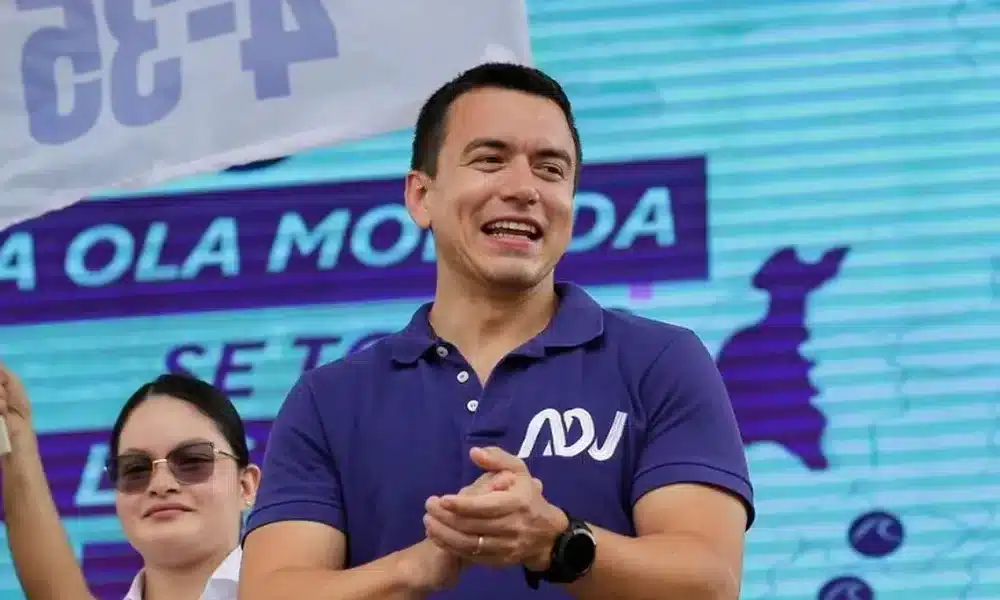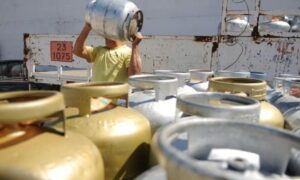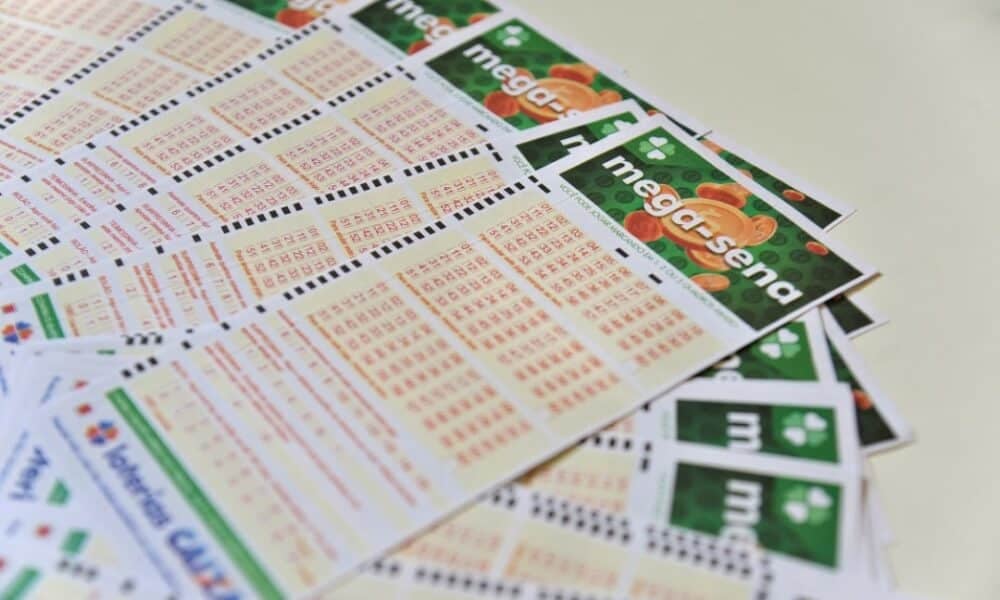Ecuador Imposes 27% Tariff on Mexican Products Amid Diplomatic Tensions
The Ecuadorian government, led by President Daniel Noboa, announced on Monday (3) the imposition of a 27% tariff on imported Mexican products. According to Noboa, the decision aims to ensure fairer treatment for Ecuadorian businesses against what he considers “abuse” in trade relations between the two nations. This new measure comes amid an ongoing diplomatic crisis that began in 2024 when Ecuadorian security forces raided the Mexican embassy in Quito to arrest former Vice President Jorge Glas, who had been granted asylum there. The incident led to the suspension of diplomatic ties between the two countries and deepened political and trade conflicts.
The Mexican Ministry of Economy has not yet commented on Ecuador’s tariff decision. However, trade experts warn that Mexico may retaliate against Ecuador. Noboa’s move also comes at a time of global trade disputes, just days after the United States announced a 25% tariff on Mexican products—a decision later suspended after negotiations between the two governments.
Tensions between Ecuador and Mexico continue to escalate, while Noboa maintains a firm stance on trade and international relations. With Ecuador’s general elections scheduled for Sunday (9), the new tariff is also seen as a strategic move to consolidate internal support, particularly among business sectors facing direct competition from imported goods.
Background on the Ecuador-Mexico Diplomatic Breakdown
Diplomatic relations between the two countries were abruptly severed in April 2024 when Ecuadorian security agents stormed the Mexican embassy in Quito to arrest former Vice President Jorge Glas. Glas, convicted of corruption in 2017 and sentenced to six years in prison due to his involvement in the Odebrecht bribery scandal, had been residing in the embassy since December 2023 under political asylum.
The police action was widely condemned as a severe violation of the 1961 Vienna Convention on Diplomatic Relations, which guarantees the inviolability of foreign embassies. The Mexican government immediately responded by breaking diplomatic ties with Ecuador and taking the matter to international legal forums.
Since then, the two nations have not restored diplomatic relations, and the crisis has taken a new turn with the recent tariff announcement. Noboa’s decision intensifies the dispute, raising concerns about its economic impact on Ecuadorian consumers and Mexican businesses that rely on trade with Ecuador.
Economic Impact of the 27% Tariff on Mexican Products
Noboa’s decision directly affects various sectors of the Ecuadorian and Mexican economies. Bilateral trade between the two countries is valued at approximately $1.2 billion annually, and the new tariff could increase costs for consumers and businesses that depend on Mexican imports.
The primary Mexican exports to Ecuador include:
- Automobiles and automotive parts
- Electronics and home appliances
- Processed foods and beverages
- Pharmaceuticals and medical supplies
- Industrial raw materials
With the new tariff, prices for consumer goods and industrial inputs are expected to rise, directly impacting inflation in Ecuador. While Ecuadorian importers have expressed concern, domestic industrial and agricultural sectors—competing with Mexican imports—have welcomed the measure, seeing it as an opportunity to strengthen local production.
Trade experts warn that Mexico could respond with retaliatory measures, such as imposing tariffs on Ecuadorian exports, potentially harming Ecuador’s access to the Mexican market. The Mexican government is still evaluating its official response to Quito’s decision.
The Trade Crisis in a Global Context
Ecuador’s announcement of a 27% tariff comes at a time of rising global trade tensions. The measure mirrors policies recently adopted by the United States, which announced a 25% tariff on Mexican products. However, the U.S. decision was later overturned following diplomatic negotiations.
As global economic growth slows and domestic pressures rise, countries are increasingly adopting protectionist measures to safeguard their national economies. Ecuador follows this trend, but its vulnerable position in international trade may lead to difficulties if new barriers are imposed by key trade partners.
The response from Mexico and international organizations will be crucial in determining the next developments in this crisis. Ecuador, meanwhile, is betting that the measure will yield short-term economic benefits without fully considering potential long-term consequences.
The Role of Ecuador’s Elections in Noboa’s Decision
With general elections approaching, Noboa’s decision to impose tariffs on Mexican products also carries political weight. The president is seeking re-election and aims to bolster his support base by adopting a nationalist and pro-local economy stance.
The strategy is designed to attract business sector voters and local industries struggling with foreign competition. Noboa has positioned himself as a leader who prioritizes Ecuador’s economic interests, reinforcing his image as a defender of national industries and agriculture.
However, in the long term, analysts warn that the measure could harm Ecuador’s economy if Mexico retaliates or if other countries impose trade restrictions. The actual impact of the tariff will depend on market reactions and whether Ecuador can successfully boost domestic production to replace affected imports.
Reactions and Expectations in the Coming Days
Ecuador’s business community has shown mixed reactions to Noboa’s decision. While local industries celebrate protection from Mexican products, importers warn of rising costs and potential shortages of certain goods in the domestic market.
The Mexican government has yet to release an official statement, but analysts anticipate a firm response to the economic impact caused by Ecuador’s new tariff. If Mexico retaliates, Ecuadorian sectors that rely on exports to the country could suffer significant losses.
The situation will also be monitored by international organizations such as the World Trade Organization (WTO), which may intervene if Ecuador’s decision violates existing trade agreements.

The Ecuadorian government, led by President Daniel Noboa, announced on Monday (3) the imposition of a 27% tariff on imported Mexican products. According to Noboa, the decision aims to ensure fairer treatment for Ecuadorian businesses against what he considers “abuse” in trade relations between the two nations. This new measure comes amid an ongoing diplomatic crisis that began in 2024 when Ecuadorian security forces raided the Mexican embassy in Quito to arrest former Vice President Jorge Glas, who had been granted asylum there. The incident led to the suspension of diplomatic ties between the two countries and deepened political and trade conflicts.
The Mexican Ministry of Economy has not yet commented on Ecuador’s tariff decision. However, trade experts warn that Mexico may retaliate against Ecuador. Noboa’s move also comes at a time of global trade disputes, just days after the United States announced a 25% tariff on Mexican products—a decision later suspended after negotiations between the two governments.
Tensions between Ecuador and Mexico continue to escalate, while Noboa maintains a firm stance on trade and international relations. With Ecuador’s general elections scheduled for Sunday (9), the new tariff is also seen as a strategic move to consolidate internal support, particularly among business sectors facing direct competition from imported goods.
Background on the Ecuador-Mexico Diplomatic Breakdown
Diplomatic relations between the two countries were abruptly severed in April 2024 when Ecuadorian security agents stormed the Mexican embassy in Quito to arrest former Vice President Jorge Glas. Glas, convicted of corruption in 2017 and sentenced to six years in prison due to his involvement in the Odebrecht bribery scandal, had been residing in the embassy since December 2023 under political asylum.
The police action was widely condemned as a severe violation of the 1961 Vienna Convention on Diplomatic Relations, which guarantees the inviolability of foreign embassies. The Mexican government immediately responded by breaking diplomatic ties with Ecuador and taking the matter to international legal forums.
Since then, the two nations have not restored diplomatic relations, and the crisis has taken a new turn with the recent tariff announcement. Noboa’s decision intensifies the dispute, raising concerns about its economic impact on Ecuadorian consumers and Mexican businesses that rely on trade with Ecuador.
Economic Impact of the 27% Tariff on Mexican Products
Noboa’s decision directly affects various sectors of the Ecuadorian and Mexican economies. Bilateral trade between the two countries is valued at approximately $1.2 billion annually, and the new tariff could increase costs for consumers and businesses that depend on Mexican imports.
The primary Mexican exports to Ecuador include:
- Automobiles and automotive parts
- Electronics and home appliances
- Processed foods and beverages
- Pharmaceuticals and medical supplies
- Industrial raw materials
With the new tariff, prices for consumer goods and industrial inputs are expected to rise, directly impacting inflation in Ecuador. While Ecuadorian importers have expressed concern, domestic industrial and agricultural sectors—competing with Mexican imports—have welcomed the measure, seeing it as an opportunity to strengthen local production.
Trade experts warn that Mexico could respond with retaliatory measures, such as imposing tariffs on Ecuadorian exports, potentially harming Ecuador’s access to the Mexican market. The Mexican government is still evaluating its official response to Quito’s decision.
The Trade Crisis in a Global Context
Ecuador’s announcement of a 27% tariff comes at a time of rising global trade tensions. The measure mirrors policies recently adopted by the United States, which announced a 25% tariff on Mexican products. However, the U.S. decision was later overturned following diplomatic negotiations.
As global economic growth slows and domestic pressures rise, countries are increasingly adopting protectionist measures to safeguard their national economies. Ecuador follows this trend, but its vulnerable position in international trade may lead to difficulties if new barriers are imposed by key trade partners.
The response from Mexico and international organizations will be crucial in determining the next developments in this crisis. Ecuador, meanwhile, is betting that the measure will yield short-term economic benefits without fully considering potential long-term consequences.
The Role of Ecuador’s Elections in Noboa’s Decision
With general elections approaching, Noboa’s decision to impose tariffs on Mexican products also carries political weight. The president is seeking re-election and aims to bolster his support base by adopting a nationalist and pro-local economy stance.
The strategy is designed to attract business sector voters and local industries struggling with foreign competition. Noboa has positioned himself as a leader who prioritizes Ecuador’s economic interests, reinforcing his image as a defender of national industries and agriculture.
However, in the long term, analysts warn that the measure could harm Ecuador’s economy if Mexico retaliates or if other countries impose trade restrictions. The actual impact of the tariff will depend on market reactions and whether Ecuador can successfully boost domestic production to replace affected imports.
Reactions and Expectations in the Coming Days
Ecuador’s business community has shown mixed reactions to Noboa’s decision. While local industries celebrate protection from Mexican products, importers warn of rising costs and potential shortages of certain goods in the domestic market.
The Mexican government has yet to release an official statement, but analysts anticipate a firm response to the economic impact caused by Ecuador’s new tariff. If Mexico retaliates, Ecuadorian sectors that rely on exports to the country could suffer significant losses.
The situation will also be monitored by international organizations such as the World Trade Organization (WTO), which may intervene if Ecuador’s decision violates existing trade agreements.











Post Comment